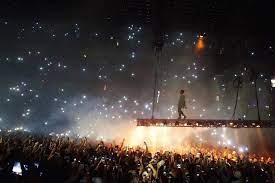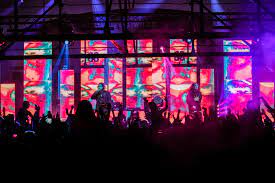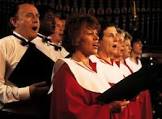Orchestra Concerts: A Symphony of Musical Brilliance
There is something truly magical about attending an orchestra concert. The moment the lights dim, the conductor takes their place on the podium, and the musicians raise their instruments, a hushed anticipation fills the air. As the first notes reverberate through the concert hall, a symphony of musical brilliance begins to unfold.
Orchestra concerts are more than just performances; they are immersive experiences that transport us to another world. From classical compositions to contemporary works, these concerts showcase the mastery and artistry of talented musicians who have dedicated their lives to perfecting their craft.
One of the most captivating aspects of an orchestra concert is its ability to elicit a range of emotions. The music swells and recedes, creating tension and release, evoking joy, sadness, excitement, and contemplation. It is a universal language that speaks directly to our hearts and souls.
Attending an orchestra concert also offers a unique opportunity to witness collaboration at its finest. Each musician contributes their individual expertise and skill, seamlessly blending together to create a harmonious whole. The conductor serves as both guide and interpreter, leading the ensemble with precision and passion. Together, they breathe life into every note, creating an experience that is both awe-inspiring and deeply moving.
Moreover, orchestra concerts provide a platform for showcasing exceptional soloists. Whether it’s a virtuosic violinist or a mesmerizing pianist, these talented individuals take center stage for moments of pure musical brilliance. Their performances captivate audiences with their technical prowess and emotional depth.
Beyond the sheer beauty of the music itself, orchestra concerts also offer a sense of community. Sitting among fellow music lovers in a grand concert hall creates a shared experience that transcends words. Applause breaks out after each movement or piece as listeners express appreciation for the musicians’ dedication and talent. It is in these moments that we feel connected not only to the music but also to each other.
In recent years, orchestras have also embraced innovation and experimentation, incorporating multimedia elements, collaborations with other art forms, and even interactive performances. These endeavors seek to engage new audiences and make the experience of attending an orchestra concert more accessible and inclusive.
Whether you are a seasoned concert-goer or someone attending their first orchestra performance, the impact of witnessing a live symphony cannot be overstated. The power of the music, the skill of the musicians, and the collective energy of the audience all combine to create an unforgettable experience.
So, next time you have the opportunity to attend an orchestra concert, immerse yourself in this symphony of musical brilliance. Let yourself be transported by the soaring melodies, swept away by the harmonies, and moved by the sheer beauty of it all. It is an experience that will leave you with a renewed appreciation for the power of music and its ability to touch our souls.
Frequently Asked Questions About Orchestra Concerts: Ticket Prices, Start Times, Music Genre, Discounts, and Venue Policies
- What time do orchestra concerts start?
- How much are tickets for an orchestra concert?
- Where can I find a list of upcoming orchestra concerts?
- What type of music does an orchestra typically play?
- Are there discounts available for attending an orchestra concert?
- Is food and drink allowed at the venue during an orchestra concert?
What time do orchestra concerts start?
Orchestra concert start times can vary depending on the specific event and venue. Typically, evening concerts tend to start between 7:30 PM and 8:00 PM. Matinee concerts, which are held in the afternoon, usually begin around 2:00 PM or 3:00 PM. However, it’s important to note that these timings are general guidelines and may vary from one orchestra or concert series to another. To ensure accurate information, it is best to check the official website or contact the concert venue directly for the specific start time of a particular orchestra concert you plan to attend.
How much are tickets for an orchestra concert?
The ticket prices for orchestra concerts can vary depending on several factors, including the location, the reputation of the orchestra, the venue, and the specific event or program being performed. Generally, ticket prices can range from affordable options to more premium seats.
For major orchestras performing in prestigious concert halls or venues, ticket prices for prime seating areas may be higher. These premium seats often offer a closer view of the stage and an enhanced listening experience. However, many orchestras also offer more affordable options in different sections of the concert hall, allowing a wider range of audience members to enjoy their performances.
It’s important to note that ticket prices can also fluctuate based on factors such as guest soloists or special events. For instance, concerts featuring renowned guest artists or highly anticipated programs may have higher ticket prices due to increased demand.
To find out specific pricing details for an orchestra concert you are interested in attending, it is best to visit the website or contact the box office of the respective orchestra or venue. They will have up-to-date information on ticket availability and pricing for their upcoming performances.
Remember that experiencing an orchestra concert is a unique opportunity to witness exceptional musicianship and be immersed in a world of beautiful music. Whether you opt for more affordable seating or choose premium tickets for a closer view, attending an orchestra concert is sure to be a memorable and enriching experience.
Where can I find a list of upcoming orchestra concerts?
To find a list of upcoming orchestra concerts, there are several resources you can explore:
- Local Orchestra Websites: Visit the websites of your local orchestras or symphony halls. They often have a dedicated section for upcoming concerts, providing details about dates, venues, repertoire, and ticket information.
- Concert Listings Websites: Check out online platforms that specialize in concert listings and event calendars. Websites like Eventbrite, Ticketmaster, Songkick, and Bandsintown often feature listings for orchestra concerts in various cities.
- Local Newspapers and Magazines: Browse through the entertainment sections of your local newspapers or magazines. They usually provide comprehensive event listings that include orchestra concerts along with other cultural events happening in your area.
- Social Media: Follow the social media accounts of orchestras or symphony halls in your region. They frequently post updates about their upcoming performances, including concert dates, program highlights, and ticketing information.
- Music Apps: Utilize music streaming apps like Spotify or Apple Music that often feature curated playlists and recommendations based on your musical preferences. These apps also promote upcoming concerts by artists and orchestras you follow or listen to.
- Community Calendars: Check community calendars provided by local government websites or community organizations in your area. These calendars often include a wide range of events happening within the community, including orchestra concerts.
Remember to check these sources regularly as new concerts are announced throughout the year. By exploring these avenues, you will stay informed about upcoming orchestra concerts near you and have the opportunity to immerse yourself in the captivating world of live symphonic music.
What type of music does an orchestra typically play?
An orchestra typically plays a wide range of musical genres, with a primary focus on classical music. Classical orchestral repertoire includes symphonies, concertos, overtures, suites, and various instrumental and vocal compositions. This encompasses works by renowned composers such as Bach, Mozart, Beethoven, Tchaikovsky, Brahms, Mahler, and many others.
Within the classical realm, orchestras perform compositions from different periods like Baroque, Classical, Romantic, and Contemporary. Each period has its distinct style and characteristics. For example, Baroque music is known for its ornate melodies and intricate counterpoint, while Romantic music often expresses intense emotions and features lush harmonies.
In addition to classical music, orchestras also explore other genres to diversify their programming and attract broader audiences. These may include pops concerts featuring popular songs from various eras or film scores performed alongside screenings of beloved movies. Orchestras might also collaborate with contemporary composers to premiere new works that push the boundaries of traditional orchestral music.
Furthermore, some orchestras specialize in specific genres like opera or ballet performances. They work closely with singers or dancers to provide live accompaniment for these theatrical productions.
Overall, while classical music forms the core repertoire of an orchestra’s performances, they often embrace a diverse range of styles to cater to different tastes and engage audiences across generations.
Are there discounts available for attending an orchestra concert?
Yes, there are often discounts available for attending orchestra concerts, depending on the specific concert and the policies of the organizing institution. Here are a few common types of discounts you may find:
- Student Discounts: Many orchestras offer discounted tickets for students with a valid student ID. This is a great way to make live orchestral performances more accessible to young music enthusiasts or students studying music.
- Senior Citizen Discounts: Some orchestras provide discounted tickets for senior citizens, recognizing their lifelong appreciation for music and their contribution to the arts community.
- Group Discounts: If you plan to attend an orchestra concert with a large group of friends, family, or colleagues, you may be eligible for group discounts. These discounts vary depending on the orchestra’s policies and the size of the group.
- Subscription Packages: Orchestras often offer subscription packages that allow you to purchase tickets for multiple concerts in a season at a discounted rate compared to individual ticket prices. These packages can provide significant savings and ensure you have access to a variety of performances throughout the year.
- Promotional Offers: Keep an eye out for promotional offers or special deals that orchestras may run from time to time. These could include discounted tickets for specific performances, limited-time offers, or partnerships with other organizations that provide ticket discounts.
To take advantage of these discounts, it’s recommended to check the official website of the orchestra you wish to attend or contact their box office directly. They will have up-to-date information on available discounts and any special promotions they may be offering.
Attending an orchestra concert can be a truly enriching experience, and these discount opportunities can make it more accessible and affordable for everyone to enjoy the beauty of live symphonic music.
Is food and drink allowed at the venue during an orchestra concert?
The policy regarding food and drink during an orchestra concert can vary depending on the specific venue and event. Generally, it is advisable to check with the venue or event organizers for their specific guidelines.
In many traditional concert halls, there is a general expectation of maintaining a quiet and respectful atmosphere during performances. As such, food and drink may not be allowed inside the concert hall itself to minimize noise and distractions that could disrupt the musicians or fellow audience members.
However, many venues have designated areas such as lobbies or concessions areas where patrons can enjoy refreshments before or after the concert, during intermission, or in between pieces. These areas are typically designed to allow for socializing and refreshments without interfering with the concert experience.
It’s important to note that even in designated areas, certain restrictions may still apply. For instance, glass containers or alcoholic beverages might not be permitted due to safety concerns or venue regulations.
To ensure a pleasant experience for everyone involved, it is always recommended to review the specific policies of the venue beforehand. This information can usually be found on their website or by contacting their box office directly.




